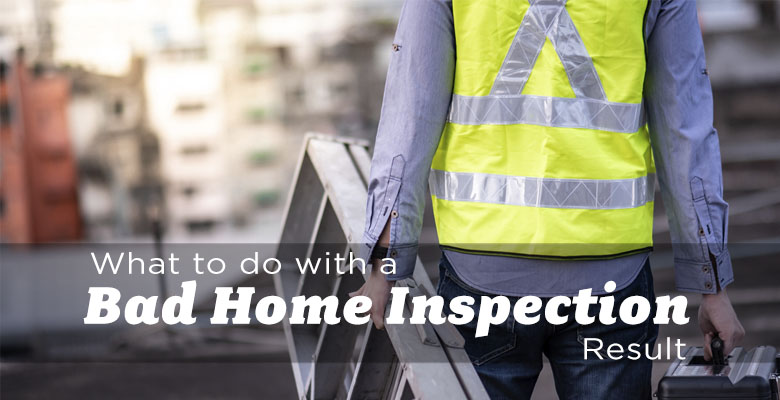
Home Inspection FAQs:
What is a home inspection?
A home inspection is an opinion provided by a licensed home inspector on a home's condition based primarily on a non-invasive/visual examination of its accessible features and components.What is a home inspection condition?
An offer can have conditions that benefit the buyer, the seller, or both. Buyers often include financing and inspection conditions as part of their offer to purchase; if any conditions are not removed by the deadline agreed to in the offer, the sale does not proceed.Who pays for the home inspection?
Since the inspection is typically a buyer's condition, the buyer almost always pays for the inspection.How long does a home inspection take?
The length of a home inspection will depend on the size and type of property and the inspector's thoroughness. In most cases, an inspection takes from 2-4 hours.How long does a buyer have to remove their inspection condition?
The inspection condition removal deadline is agreed to in the purchase contract; inspection conditions are typically 7-14 days long but may be extended if the buyer and seller agree.Who should attend the home inspection?
Ideally, the only people that attend the inspection are the buyer, their agent and the licensed home inspector. The seller may stipulate that only certain people attend the inspection - if you want anyone else to join you, such as a contractor, make sure you talk to your agent in advance.Most Common Inspection Issues
Don't get caught by surprise - an inspection report will often include a long list of suggestions regardless of the home's age. The inspector is likely just making the buyer aware of any required maintenance. However, there may be critical repairs that need to be addressed; here are the most common problems that come up on inspection reports:- Roofing - an inspector could find anything from a few missing shingles to leaks and water problems and will likely give the buyers an idea of how long the roof will last before it needs to be replaced.
- Foundation - foundations crack, and not all cracks are bad - a home inspector can point out cracks that need to be fixed if the foundation is visible.
- Water damage - many inspectors will use a moisture sensor to search for water damage that might be hidden behind drywall or flooring. Moisture sensors are notoriously unreliable when it comes to estimating the severity of the damage, but the presence of water may require further (invasive) investigation to repair.
- Electrical - many older homes in the Edmonton area still have 60amp service, which your agent will probably point out when you view the home. Other common issues are aluminum wiring, faulty or missing GFCI outlets and other code violations.
- Appliances - the inspector will turn on all the appliances, run them through a cycle to make sure they're working, and may record serial numbers if there is a concern that they might be replaced before closing.
- Asbestos - commonly found in insulation, flooring, vent tape, and even drywall, asbestos needs to be remediated before any renovations occur.
- Windows and doors - Inspectors commonly find failing window seals, windows and doors that don't open and close properly or broken panes.
- Furnace - a cracked heat exchanger will likely need immediate repair, and, depending on the age of the furnace, it may warrant a replacement.
Buyers Options After an Unsatisfactory Inspection
If the buyer is not happy with the results of a home inspection, they generally have three options:- Ask for repairs - the seller may be willing to fix minor repairs, especially if they still live in the home, and the report identified something critical. If the repair is costly, the buyer and seller may negotiate a "hold back" clause. The buyer's lawyer would hold back a certain amount of money until the work is completed in a manner satisfactory to the buyer.
- Ask for a price reduction - the seller may be willing to renegotiate the sale price depending on the situation. Buyers often look for other options since the repairs become an additional cost instead of having them included in their mortgage. Cashback on closing without the lender's knowledge and consent is mortgage fraud, so don't go down that tricky path without your lawyer's advice.
- Walk away - if the issues are simply too much for the buyer to accept, and they don't remove their inspection condition within the time limit set out in the purchase contract, the deal collapses.
What if the buyer backs out after an unsatisfactory inspection?
If the buyer backs out of the deal because they were unhappy with the inspection, you should turn to your real estate agent for guidance and support. Perhaps the buyer had unrealistic expectations; maybe a few small repairs are needed to make the next inspection go smoothly. However, if the inspection uncovered significant issues, you will have to remediate or disclose them to interested buyers in the future. Make sure you hold on to any receipts or guarantees from contractors that make repairs. On the plus side, any repairs you make could become selling features when you re-list.Reasonable repair requests after a home inspection include:
- any health, safety or code issues that were not previously disclosed to the buyer
- plumbing, drainage or sewer issues
- mould or water damage
- roof leaks or missing shingles
- anything that, if left unrepaired, could cause damage to the home before the buyer takes possession
Unreasonable repair requests after a home inspection include:
- cosmetic issues that should have been noticed when the buyer first viewed the property
- renovations or improvements
- minor, inexpensive repairs
- basement floor cracks that have no structural impact

Leave A Comment